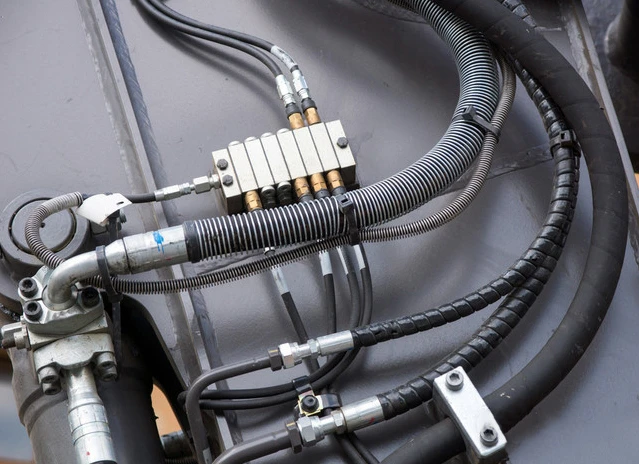Flexible oil lines stand at the forefront of modern engineering, ensuring that the needs of dynamic and high-pressure environments are met with precision and reliability. These components are indispensable in a wide range of applications, from automotive and aviation to industrial machinery and residential heating systems. Their significance is further underscored by their ability to accommodate the dynamic nature of contemporary mechanical and fluid conveyance systems.
One of the primary advantages of flexible oil lines is their adaptability. These lines are engineered to withstand extreme conditions, including high temperatures and pressures, while maintaining their structural integrity. This flexibility is vital in environments where rigid piping may fail or require frequent maintenance. Composed typically of layers of reinforced rubber or synthetic compounds, these oil lines are designed to absorb vibrations, reduce system noise, and accommodate movements or shifts in the connected machinery.
In the automotive industry, flexible oil lines play a crucial role in the efficient operation of engines and transmission systems. They facilitate the seamless flow of lubricants and hydraulic fluids, which are essential for reducing friction and wear on moving parts. By ensuring optimal delivery of oils, these components contribute significantly to the longevity and performance of vehicles. Furthermore, their flexible nature allows them to be routed through complex engine designs, which is particularly beneficial in modern compact engine bays where space is a premium.
In aviation, the stakes are even higher. Here, flexible oil lines are subjected to rigorous testing and certification processes to meet stringent safety standards. The lines must function flawlessly under high-pressure conditions at varying altitudes and temperatures. By preventing leaks and ensuring consistent fluid flow, flexible oil lines are crucial in maintaining the operational safety of aircraft. Moreover, the advanced materials used in these lines resist deterioration from harsh chemicals and extreme thermal cycling, thus ensuring reliability over extended periods.
From an industrial perspective, flexible oil lines facilitate the transport of oils and other critical fluids in manufacturing processes and heavy machinery. Their design is often tailored to meet specific operational demands, including resistance to aggressive chemicals, abrasion, and thermal changes. This bespoke nature ensures that flexible oil lines are integral components in minimizing downtime and enhancing productivity in sectors ranging from petrochemicals to power generation.flexible oil line
The residential sector also benefits from the incorporation of flexible oil lines, particularly in heating systems. These lines enable effective and safe oil conveyance from storage tanks to burners, ensuring efficient energy use in homes. Their easy installation and ability to bend around structural impediments make them the preferred choice in both new and retrofit heating systems. Furthermore, their durability reduces the need for frequent replacements, providing homeowners with peace of mind concerning maintenance costs and operational safety.
Expertise in manufacturing flexible oil lines involves an intricate understanding of material sciences and fluid dynamics. The selection of construction materials is pivotal, with manufacturers often using synthetic elastomers, steel braiding, or other composites to achieve desired flexibility, strength, and resistance characteristics. Maintaining high manufacturing standards through rigorous quality control processes ensures that each line can withstand its operational environment, thereby affirming the manufacturer's authority in producing high-grade components.
Manufacturers employ advanced engineering techniques and leverage cutting-edge technology to maintain trustworthiness in the production of flexible oil lines. Meticulous testing simulates real-world conditions to verify that each line meets or exceeds industry standards. Such rigorous assessment processes build trust with consumers, who rely on these components for critical applications where failure could result in significant financial or safety repercussions.
In conclusion, flexible oil lines are an essential component in a myriad of applications that require reliability, adaptability, and precision. Their ability to operate effectively in diverse conditions underscores their importance across different sectors. As technological advancements continue to emerge, the development and optimization of flexible oil lines will undoubtedly play a pivotal role in meeting the evolving demands of modern engineering and design, thus cementing their place as a cornerstone of fluid conveyance solutions.
OUR LATEST NEWS
Strict quality control strict production team to ensure stable products quality. Scientific personnel management, efficient production arrangements to ensure our timely delivery.























